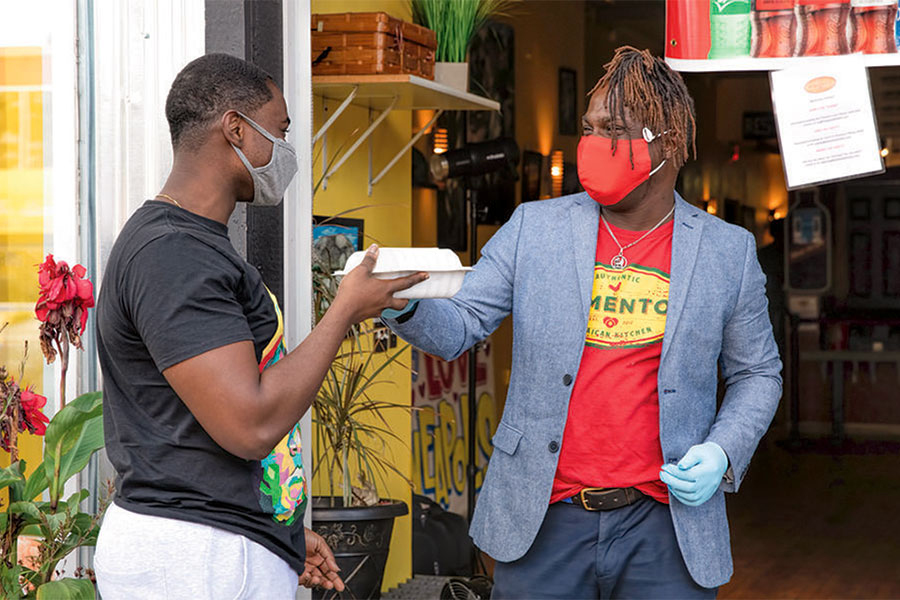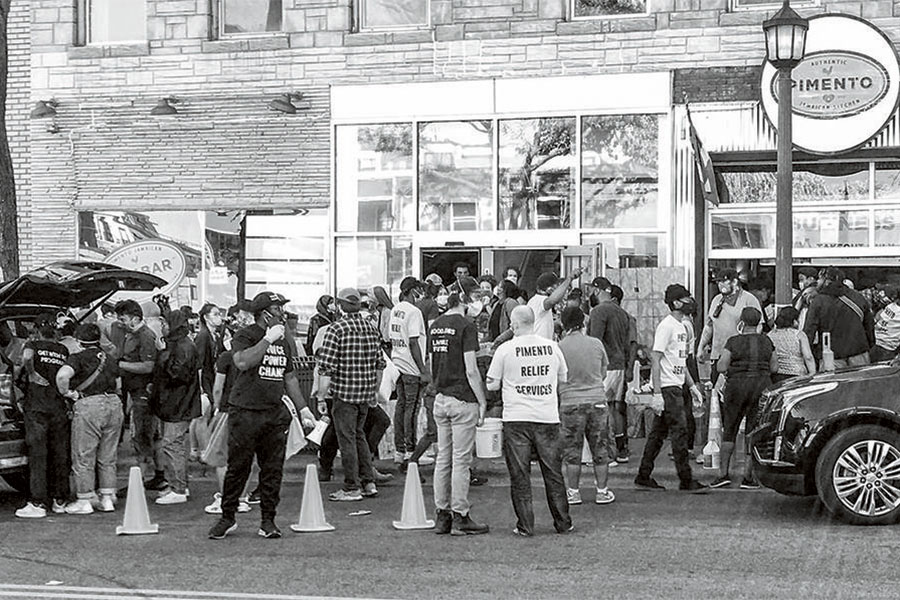
Tomme Beevas (Carlson Executive MBA ’11) is a father, an entrepreneur, and a movement builder who effortlessly weaves history lessons, policy knowledge, and recipes throughout his conversation.
After winning the Food Network’s Food Court Wars in 2013 at Pimento Jamaican Kitchen’s Burnsville Center location, Beevas resigned from his position at Cargill as director of global community involvement and opened a second location in 2016: Pimento Jamaican Kitchen on Eat Street in South Minneapolis. A staple of feel-good, authentic Jamaican cuisine, Beevas has built a gathering spot for more than food.
“My superpower is convening people who don’t normally get together. Pimento is like Jamaica, where everyone can come together,” he says.
That’s just what Pimento became for organizers, donors, and those in need in the aftermath of the killing of George Floyd on May 25, 2020. In the weeks following the tragedy, protests rippled through Minneapolis, as did opportunists who took to the streets destroying property. In some areas, the uprising brought the destruction of vital community grocery and supply stores, leaving residents and families without access to food and basic necessities.
Almost overnight, supply collection and distribution sites popped up across the Twin Cities, with donations arriving from all over the state. From churches to restaurants, parks, and small businesses, community organizers mobilized quickly for safe aid distribution.
Within a few days, Pimento turned its entire operation into a donation collection and pick-up site for the community—an effort that became known as Pimento Relief Services. Staff and volunteers fed more than 4,000 people and raised $70,000 to provide emergency support.
“Who’d have thought Pimento, a Jamaican restaurant, would provide these kinds of services?” Beevas says.
Pimento Relief Services continues to evolve with the needs of the community, officially incorporating as a B Corp to build more structure and expand its ability to serve. Beevas wants to create a sustainable, long-term model for community support that moves beyond emergency relief and into community prosperity, investing in the economic development of Black people, organizations, and movements.
“Investing in the community should be treated like a normal investment,” he says. “We are asking people to invest in this corporation and reimagine the instruments of liberation because everyone has something they can bring to the table.”
Beevas defines that liberation as the economic, political, and social advancement of Black communities, investing in ownership of businesses and land, and providing resources for political candidates to run and win.
He recognizes the importance of centering Black voices in the growth and development of Pimento Relief Services. And he’s ready to use his rich understanding of history to provide bold, visionary leadership.
To make this happen, Beevas is bringing community leaders to the table to reimagine what funding mechanisms, educational opportunities, and foundational structures are needed to build out his organization.
“All options are on the table. With the distribution efforts, we fed 4,000 people in the first couple of weeks. The question is how do we prevent these people from needing to come back for more next week? We need to figure out how to fill that gap until the food deserts are closed or there’s an oasis there,” says Beevas.
He knows the vision for a better future is going to take more than a quick fix.
“Individuals and the business community must see Black businesses as a part of growing our economy, and not just on Black business day.”
-------
This story was adapted from the Carlson School.
"port" - Google News
December 17, 2020 at 07:00PM
https://ift.tt/3mthwec
A port in the storm | University of Minnesota - UMN News
"port" - Google News
https://ift.tt/2VXul6u
https://ift.tt/2WmIhpL


No comments:
Post a Comment